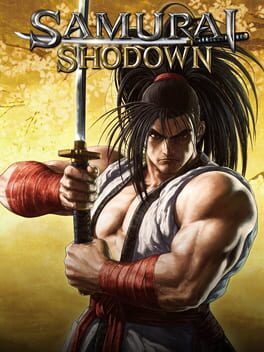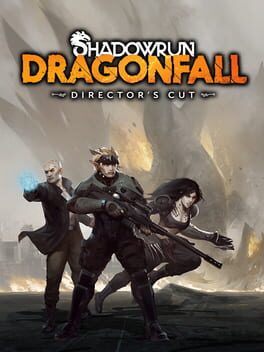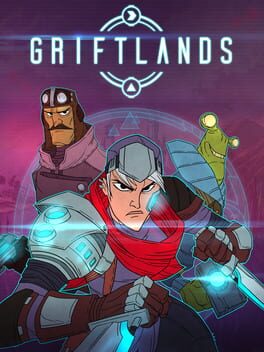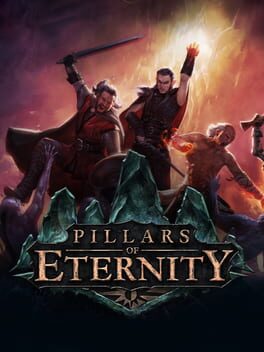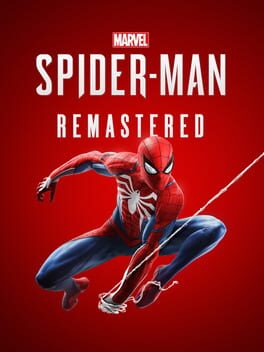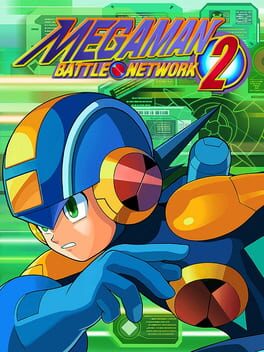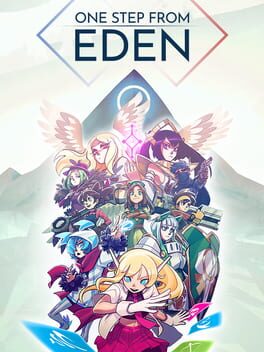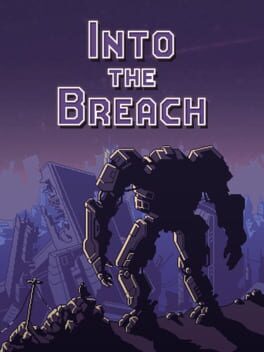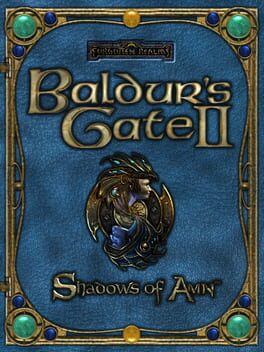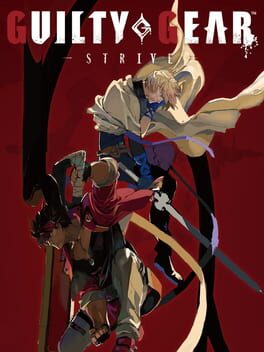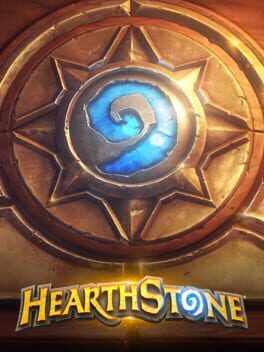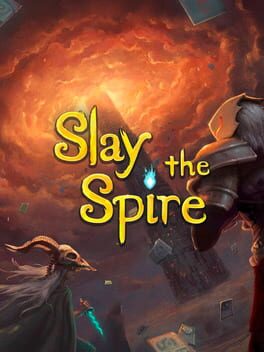synthezoid
2019
A better cyberpunk game than that other one?
As prescient as the best of its genre, Shadowrun: Dragonfall is a truly dense game. Dense with strong writing, memorable characters (Dietrich and Glory are my favorites!), authentic themes, and interesting content. Rather than wringing a giant, sprawling world dry and padding it with repetitive junk encounters, Dragonfall offers streamlined paths with just enough meaningful branches to respect your choices, and just few enough to make most of those choices meaningful.
Punctuating Shadowrun's dialogue, story, and decision making is a tactical if slightly uninspiring combat system borrowing heavily from XCOM, minus the permadeath or extensive depth that defines that franchise. I wish a bit more work had gone into this, as it's enjoyable when it goes smoothly, but tends to drag on a bit too long. Playing on higher difficulties can make it more challenging and rewarding, but long animations, a similar first few turns each time, and a generally unimpactful game feel make the threat of replaying a combat from the start unenticing.
The combat is thankfully incredibly well-integrated into the narrative. There are ways to avoid it when appropriate, but not all the time (just like in real life). In general, the game could use some more varied solutions to quests--there are often two or more ways to proceed, but it still occasionally funnels you into the same combat setpiece. Outside of those moments, the paths it offers are usually interesting, but in putting so much emphasis on streamlining, some more emergent, mechanically-driven options are almost completely absent. It ends up feeling more scripted than your Fallouts or your Original Sin 2s, but thankfully, Dragonfall brings an unusually great script, even for a genre known for strong narratives.
In clearing away the bloat that is common to too many RPGs, Dragonfall leaves you with an experience that is dripping with substance, though it leaves some style on the cutting room floor in the process.
As prescient as the best of its genre, Shadowrun: Dragonfall is a truly dense game. Dense with strong writing, memorable characters (Dietrich and Glory are my favorites!), authentic themes, and interesting content. Rather than wringing a giant, sprawling world dry and padding it with repetitive junk encounters, Dragonfall offers streamlined paths with just enough meaningful branches to respect your choices, and just few enough to make most of those choices meaningful.
Punctuating Shadowrun's dialogue, story, and decision making is a tactical if slightly uninspiring combat system borrowing heavily from XCOM, minus the permadeath or extensive depth that defines that franchise. I wish a bit more work had gone into this, as it's enjoyable when it goes smoothly, but tends to drag on a bit too long. Playing on higher difficulties can make it more challenging and rewarding, but long animations, a similar first few turns each time, and a generally unimpactful game feel make the threat of replaying a combat from the start unenticing.
The combat is thankfully incredibly well-integrated into the narrative. There are ways to avoid it when appropriate, but not all the time (just like in real life). In general, the game could use some more varied solutions to quests--there are often two or more ways to proceed, but it still occasionally funnels you into the same combat setpiece. Outside of those moments, the paths it offers are usually interesting, but in putting so much emphasis on streamlining, some more emergent, mechanically-driven options are almost completely absent. It ends up feeling more scripted than your Fallouts or your Original Sin 2s, but thankfully, Dragonfall brings an unusually great script, even for a genre known for strong narratives.
In clearing away the bloat that is common to too many RPGs, Dragonfall leaves you with an experience that is dripping with substance, though it leaves some style on the cutting room floor in the process.
2020
When Griftlands launched, it seemed to be billed as the latest in the deckbuilding roguelite craze. However, it never made quite the splash that was promised, in spite of Klei’s promising track record with cult-hit indie games. Playing the game, it’s easy to see why it might not have taken off, but it’s also a shame that its strengths are so readily overlooked.
Griftlands’ card-battling is fun, but frankly not as fun as staples like Slay the Spire or Monster Train. This is the biggest elephant in Griftlands’ room. It’s enjoyable, but it just doesn’t have the depth or fluidity of play that make those games so fun to repeat. It also has a higher degree of meta-progression than either of those games, which can make it feel like your first few runs are needlessly stacked against you (and without any of the thematic, structural, or narrative innovations that make something like Hades work).
As far as deckbuilding roguelites go, it’s not immediately obvious what this one has over others just from a glance at its card-dueling mechanics. The biggest distinguishing mark in Griftlands' marketing is that you build a second deck of cards to represent your character’s skill in persuasion. Verbal encounters force you to cast arguments instead of attacks, with room for specialization in various forms of diplomacy, intimidation, or anything else a Bard might take proficiency in. After playing it, though, you quickly realize that, while this card-battling dialogue is just as fun as the fighting, it ultimately feels like a tweaked reskin of combat rather than a meaningful simulation of negotiation.
The roguelite structure also doesn’t seem to fit Griftlands quite as well. It’s easy to run through Slay the Spire in a quick session, win or lose, but if you play Griftlands expecting the same addicting loop of pick-up-and-put-down-no-wait-let-me-pick-that-up-again cardplay, you’ll be disappointed to see that the game length drags in comparison, and spends a lot of time outside of the cardplay entirely. This is Griftlands’ biggest weakness and its biggest strength: it’s not just trying to be Slay the Spire. It’s also trying to be an honest-to-god (western) RPG.
A narrative RPG focus and a roguelike/lite focus do seem incompatible at first blush. Imagine procgen Planescape with permadeath, or Nethack with dialogue trees and carefully scripted questlines. But by adopting an accessible and popular gameplay loop, and supplementing it with meta-progression, Griftlands makes it work. Like any good roguelite, the threat of death is constant, and this informs every decision you make. However, the gameplay is easy to understand and offers a number of opportunities to leverage an advantage. The end result? Griftlands finds an entirely new way of making moral choices meaningful.
Because one bad encounter can end an otherwise promising run, selfish--even downright evil--choices tempt in a way they never can in your typical RPG. In your average Bethesda or Bioware game, staying on everyone’s good side and valuing heroism and diplomacy usually produces the best results narratively. Sure, you can be the bad guy, but what for? The best RPGs often work around this by trying to give you morally ambiguous choices, tying multiple decisions together so that the "right answer" for one choice might depend on your previous or future decisions, or delaying the consequences so far that reloading a save for the better outcome isn’t practical. Griftlands has its share of this stuff too, but its world is just dangerous enough to consider things you'd never do in other RPGs outside of an “evil playthrough.” Yet it’s sufficiently short and approachable that you're not forced into doing evil--plus, just like real life, sometimes making friends really is the best call. While it’s not the first or only game to enhance its narrative through permadeath, it’s the most accessible--and successful--that I’ve played.
So with so much focus on storytelling, my assessment of Griftlands has to come down to its writing. And Klei’s writers do put in an admirable effort (as do their animators and character designers, as always--Griftlands looks great). Its worldbuilding is cleverly thought out, and navigating the different factions produces genuinely engaging conflicts. But whether due to the short length of its campaign or the fickle nature of procedural generation and regular restarts, none of the individual characters, relationships, quests, or moments stuck with me. The big ideas are there, and they’re memorable, but I’m not sure it sticks the landing once you get down to specifics. Still, Griftlands' integration of narrative, role-playing, and gameplay can't help but impress anyone interested in RPG design. It's just kind of a shame they built their mechanics around a genre that’s simply more fun when the story is secondary.
Griftlands’ card-battling is fun, but frankly not as fun as staples like Slay the Spire or Monster Train. This is the biggest elephant in Griftlands’ room. It’s enjoyable, but it just doesn’t have the depth or fluidity of play that make those games so fun to repeat. It also has a higher degree of meta-progression than either of those games, which can make it feel like your first few runs are needlessly stacked against you (and without any of the thematic, structural, or narrative innovations that make something like Hades work).
As far as deckbuilding roguelites go, it’s not immediately obvious what this one has over others just from a glance at its card-dueling mechanics. The biggest distinguishing mark in Griftlands' marketing is that you build a second deck of cards to represent your character’s skill in persuasion. Verbal encounters force you to cast arguments instead of attacks, with room for specialization in various forms of diplomacy, intimidation, or anything else a Bard might take proficiency in. After playing it, though, you quickly realize that, while this card-battling dialogue is just as fun as the fighting, it ultimately feels like a tweaked reskin of combat rather than a meaningful simulation of negotiation.
The roguelite structure also doesn’t seem to fit Griftlands quite as well. It’s easy to run through Slay the Spire in a quick session, win or lose, but if you play Griftlands expecting the same addicting loop of pick-up-and-put-down-no-wait-let-me-pick-that-up-again cardplay, you’ll be disappointed to see that the game length drags in comparison, and spends a lot of time outside of the cardplay entirely. This is Griftlands’ biggest weakness and its biggest strength: it’s not just trying to be Slay the Spire. It’s also trying to be an honest-to-god (western) RPG.
A narrative RPG focus and a roguelike/lite focus do seem incompatible at first blush. Imagine procgen Planescape with permadeath, or Nethack with dialogue trees and carefully scripted questlines. But by adopting an accessible and popular gameplay loop, and supplementing it with meta-progression, Griftlands makes it work. Like any good roguelite, the threat of death is constant, and this informs every decision you make. However, the gameplay is easy to understand and offers a number of opportunities to leverage an advantage. The end result? Griftlands finds an entirely new way of making moral choices meaningful.
Because one bad encounter can end an otherwise promising run, selfish--even downright evil--choices tempt in a way they never can in your typical RPG. In your average Bethesda or Bioware game, staying on everyone’s good side and valuing heroism and diplomacy usually produces the best results narratively. Sure, you can be the bad guy, but what for? The best RPGs often work around this by trying to give you morally ambiguous choices, tying multiple decisions together so that the "right answer" for one choice might depend on your previous or future decisions, or delaying the consequences so far that reloading a save for the better outcome isn’t practical. Griftlands has its share of this stuff too, but its world is just dangerous enough to consider things you'd never do in other RPGs outside of an “evil playthrough.” Yet it’s sufficiently short and approachable that you're not forced into doing evil--plus, just like real life, sometimes making friends really is the best call. While it’s not the first or only game to enhance its narrative through permadeath, it’s the most accessible--and successful--that I’ve played.
So with so much focus on storytelling, my assessment of Griftlands has to come down to its writing. And Klei’s writers do put in an admirable effort (as do their animators and character designers, as always--Griftlands looks great). Its worldbuilding is cleverly thought out, and navigating the different factions produces genuinely engaging conflicts. But whether due to the short length of its campaign or the fickle nature of procedural generation and regular restarts, none of the individual characters, relationships, quests, or moments stuck with me. The big ideas are there, and they’re memorable, but I’m not sure it sticks the landing once you get down to specifics. Still, Griftlands' integration of narrative, role-playing, and gameplay can't help but impress anyone interested in RPG design. It's just kind of a shame they built their mechanics around a genre that’s simply more fun when the story is secondary.
2015
This game really is the sum of its parts. Evidently made by an incredibly talented team, Pillars of Eternity is polished in so many ways, but weathered in so many others.
The world is interesting, I think, and some of the companions can be interesting, I think. But so much of the dialogue, especially early on when fluid exposition is crucial, feels like a text-dump. In its worst moments, it feels less like you're exploring a world full of genuinely interesting ideas, compelling mysteries, and richly developed characters and more like reading a history textbook about just such a world. That's not always a bad thing, but it doesn't always capture the spirit that set games like Baldur's Gate, Planescape, and Fallout apart.
One thing that can't be overlooked: the load times feel bad. It's perfectly playable, mind you, but even on an SSD, PoE is just a bit too heavy for its own good. I understand that there's only so much Obsidian can do, but Baldur's Gate 2: Enhanced, a re-release of one of the twenty-year-old games that Pillars models itself on, loads effortlessly and instantly. It makes you wonder if the increased visual fidelity that comes with modern hardware and development was worth it. Maybe in another fifteen years, Pillars will load just as quickly on modern hardware. But in fifteen years, will as many people still be playing Pillars as are still playing Baldur's Gate?
The combat is, on most levels, an improvement over the clunky encounters of Infinity Engine RPGs. Pre-buffing before fights is a thing of the past; most spells can only be used in combat, and encounters are balanced around this. Enemies and their abilities are designed with fewer "gotcha" mechanics, so there's little need to research solutions to break some obscure magical protection or exploit poorly explained weaknesses. The resting mechanics are also better tuned to the GM-less play patterns of a video game, making resource management more meaningful. Martial characters have more active abilities, making strategy less automatic for them. Yet, somehow, for every fight I find more fun than the average BG2 combat (and there are plenty!), there's another that is less so. Pillars is, in many ways, deeper and more tactical than BG's semi-literal translation of AD&D, and it is far and away the better-balanced game. Its combat gameplay is unerringly fair. But in turn, it's markedly less electric.
Not being able to use spells out of combat means that, while preparing for combat is less tedious, there are also no creative applications of spells outside of combat. No invisibility spells to let you steal that item you need, no charm spells to manipulate NPCs in your favor, no reward for learning the mechanics deeply enough to cheese tough enemies. This is one of many ways in which the game streamlines out creative problem solving. If there's an alternative ending to a quest in PoE, it's probably a matter of choosing a different dialogue option or talking to a different NPC. It's almost never a mechanical solution. You're not going to pickpocket or problem-solve your way around an obstacle unless it's scripted in. It's Obsidian, so of course there's usually a solid suite of alternative choices scripted in, but I still find myself wondering: what if they took off the leash? You can already choose what to ride in their RPG theme park, but what if they let us climb on the tracks instead?
The game's original mechanics, spells, and stat allocations, while well-thought-out objectively, lack the intuitive familiarity of famous D&D rulesets. I often find myself disengaged from the mechanics to the point I'm not able to make meaningful decisions in combat or character-building. Sure, I've intuited that debuff and crowd-control spells are valuable, but I can never retain which ones actually do what, or are more or less effective. Oh, this spell reduces the enemy's might, and this spell reduces their DR, and this spell increases our accuracy... but which do I need right now? Do the enemies I'm facing have a high enough DR that lowering it would matter? Is their might high enough to be concerned about? Am I missing enough hits that accuracy would help? I truly can't tell. I can never tell. I don't have any frame of reference for how the enemies are statted to begin with, even after filling the bestiary enough to check in combat. Fights against enemies you're sufficiently familiar with to have unlocked their stats are rarely challenging enough to need to examine them. And because of how hectic the combat can be, even with generous auto-pausing, it doesn't always feel possible to suss out which spells have a noticeable impact and which may as well be whiffing through observation alone, or even trial and error.
Not to mention how slow the combat gets when you're stopping to read the log and analyze each move, or how tedious it feels to load a save if you spend all that time pausing and planning only to die. And with such hectic combat, martial characters having more abilities to micromanage--though a massive step up in terms of depth and engagement--also means even more pins to juggle in a crowded circus. Even easier fights can grow tiresome because of how many there are in some areas. I spend most of the game in Fast Mode, and still I wish there was a faster mode so I could get through sprawling overworld areas or dungeons full of trash-mobs just a bit faster. Where in Baldur's Gate 2 you might have cast a Haste spell and torn through lesser enemies in a few seconds, here, any level-appropriate encounter is going to demand your time and your attention, sometimes at the expense of the pacing. Yet, if you're doing the DLC and enough side quests, it's easy for the main questline to no longer be level-appropriate. The strange thing is, while being overleveled makes things a bit too easy, I sometimes feel like it's more fun just mindlessly clicking on bad guys and getting where I need to go than it is having to run through the flowchart of buffs and special abilities that I've devised for regular combats.
But then, just when you think you've had your fill of the game for all those reasons and more, Durance will say something that takes you by surprise. Or you'll learn something shocking about the world. Or you'll find a piece of unique gear that gets you excited for the next battle instead of exhausted. Or you make it to the ending, which has such interesting choices and engaging themes that you wonder why it didn't frontload more of its best ideas. Or you play the White March DLC, which is more dense with memorable quests and worthwhile content than most areas of the base game. In moments like these--of which there are still many--Pillars lives up to its promise. I just wish there were as many of those moments as there are unwelcome Kickstarter NPCs.
The world is interesting, I think, and some of the companions can be interesting, I think. But so much of the dialogue, especially early on when fluid exposition is crucial, feels like a text-dump. In its worst moments, it feels less like you're exploring a world full of genuinely interesting ideas, compelling mysteries, and richly developed characters and more like reading a history textbook about just such a world. That's not always a bad thing, but it doesn't always capture the spirit that set games like Baldur's Gate, Planescape, and Fallout apart.
One thing that can't be overlooked: the load times feel bad. It's perfectly playable, mind you, but even on an SSD, PoE is just a bit too heavy for its own good. I understand that there's only so much Obsidian can do, but Baldur's Gate 2: Enhanced, a re-release of one of the twenty-year-old games that Pillars models itself on, loads effortlessly and instantly. It makes you wonder if the increased visual fidelity that comes with modern hardware and development was worth it. Maybe in another fifteen years, Pillars will load just as quickly on modern hardware. But in fifteen years, will as many people still be playing Pillars as are still playing Baldur's Gate?
The combat is, on most levels, an improvement over the clunky encounters of Infinity Engine RPGs. Pre-buffing before fights is a thing of the past; most spells can only be used in combat, and encounters are balanced around this. Enemies and their abilities are designed with fewer "gotcha" mechanics, so there's little need to research solutions to break some obscure magical protection or exploit poorly explained weaknesses. The resting mechanics are also better tuned to the GM-less play patterns of a video game, making resource management more meaningful. Martial characters have more active abilities, making strategy less automatic for them. Yet, somehow, for every fight I find more fun than the average BG2 combat (and there are plenty!), there's another that is less so. Pillars is, in many ways, deeper and more tactical than BG's semi-literal translation of AD&D, and it is far and away the better-balanced game. Its combat gameplay is unerringly fair. But in turn, it's markedly less electric.
Not being able to use spells out of combat means that, while preparing for combat is less tedious, there are also no creative applications of spells outside of combat. No invisibility spells to let you steal that item you need, no charm spells to manipulate NPCs in your favor, no reward for learning the mechanics deeply enough to cheese tough enemies. This is one of many ways in which the game streamlines out creative problem solving. If there's an alternative ending to a quest in PoE, it's probably a matter of choosing a different dialogue option or talking to a different NPC. It's almost never a mechanical solution. You're not going to pickpocket or problem-solve your way around an obstacle unless it's scripted in. It's Obsidian, so of course there's usually a solid suite of alternative choices scripted in, but I still find myself wondering: what if they took off the leash? You can already choose what to ride in their RPG theme park, but what if they let us climb on the tracks instead?
The game's original mechanics, spells, and stat allocations, while well-thought-out objectively, lack the intuitive familiarity of famous D&D rulesets. I often find myself disengaged from the mechanics to the point I'm not able to make meaningful decisions in combat or character-building. Sure, I've intuited that debuff and crowd-control spells are valuable, but I can never retain which ones actually do what, or are more or less effective. Oh, this spell reduces the enemy's might, and this spell reduces their DR, and this spell increases our accuracy... but which do I need right now? Do the enemies I'm facing have a high enough DR that lowering it would matter? Is their might high enough to be concerned about? Am I missing enough hits that accuracy would help? I truly can't tell. I can never tell. I don't have any frame of reference for how the enemies are statted to begin with, even after filling the bestiary enough to check in combat. Fights against enemies you're sufficiently familiar with to have unlocked their stats are rarely challenging enough to need to examine them. And because of how hectic the combat can be, even with generous auto-pausing, it doesn't always feel possible to suss out which spells have a noticeable impact and which may as well be whiffing through observation alone, or even trial and error.
Not to mention how slow the combat gets when you're stopping to read the log and analyze each move, or how tedious it feels to load a save if you spend all that time pausing and planning only to die. And with such hectic combat, martial characters having more abilities to micromanage--though a massive step up in terms of depth and engagement--also means even more pins to juggle in a crowded circus. Even easier fights can grow tiresome because of how many there are in some areas. I spend most of the game in Fast Mode, and still I wish there was a faster mode so I could get through sprawling overworld areas or dungeons full of trash-mobs just a bit faster. Where in Baldur's Gate 2 you might have cast a Haste spell and torn through lesser enemies in a few seconds, here, any level-appropriate encounter is going to demand your time and your attention, sometimes at the expense of the pacing. Yet, if you're doing the DLC and enough side quests, it's easy for the main questline to no longer be level-appropriate. The strange thing is, while being overleveled makes things a bit too easy, I sometimes feel like it's more fun just mindlessly clicking on bad guys and getting where I need to go than it is having to run through the flowchart of buffs and special abilities that I've devised for regular combats.
But then, just when you think you've had your fill of the game for all those reasons and more, Durance will say something that takes you by surprise. Or you'll learn something shocking about the world. Or you'll find a piece of unique gear that gets you excited for the next battle instead of exhausted. Or you make it to the ending, which has such interesting choices and engaging themes that you wonder why it didn't frontload more of its best ideas. Or you play the White March DLC, which is more dense with memorable quests and worthwhile content than most areas of the base game. In moments like these--of which there are still many--Pillars lives up to its promise. I just wish there were as many of those moments as there are unwelcome Kickstarter NPCs.
The copaganda at a few points is a bit much, and I'd like to see the sequel tackle making both the swinging and combat a little deeper and more varied, as well as integrating the side content into the open world more naturally. Otherwise, this is the blueprint for a perfect Spider-Man game. Getting to run around in the Raimi suit fighting Shocker and the Vulture took me right back to playing the 2002 movie game on my brother's GameCube, and that's all I've ever needed.
Charming, fun, challenging, and full of nostalgia for me, but a bit padded by backtracking and a story that, while serviceable, wears thin compared to the excitement offered by its card mechanics and riveting boss battles.
I had a good time revisiting my cartridge as a teenager after loving it as a kid, but I never quite finished it. By the time I revisited it as an adult, the save battery was dead. I don't think I'll replay it from the start again, but they really cracked the code with this game. The formula would eventually be iterated on and arguably improved in later titles, though I admire that this one skipped the Pokemon-style version gimmicks the next few games adopted.
I had a good time revisiting my cartridge as a teenager after loving it as a kid, but I never quite finished it. By the time I revisited it as an adult, the save battery was dead. I don't think I'll replay it from the start again, but they really cracked the code with this game. The formula would eventually be iterated on and arguably improved in later titles, though I admire that this one skipped the Pokemon-style version gimmicks the next few games adopted.
2020
One Step From Eden is loads of mind-grabbing fun. Battles combine deckbuilding and action combat so intensely that it may initially feel like you're being asked to play Magic: The Gathering while ice skating, and also someone is shooting at you. If you get over that hump, however, you might find yourself more prepared and eager for another round.
Still, the difficulty curve makes getting acclimated a bit harrowing. It doesn't scale in the controlled, gradual way the Battle Network games that inspired it did--instead, most players will find themselves hitting a wall by the lategame unless they draft an absurdly strong combination of spells and artifacts on top of having a strong grasp of the enemies' patterns. (I'm sure there are some players who are simply so skilled they can beat the game without taking a hit, and to whom this isn't true. I am not one of those players.) This is entirely doable, and I don't think the game should de-emphasize the supremely satisfying card synergies, but I do have to wonder if there's an alternate universe with a version of this game that focuses more on your fundamental skills than on exponential power growth, and whether or not it's any better.
The lack of pausing and rapid pace took some adjusting, too, compared to my MMBN experience. I also found myself missing so many particular gimmick chips from Battle Network--all the variations on swords, land grabbing abilities, etc., that just don't exist in this game--and it makes me wish the character and card pool were twice as big to really take advantage of the potential a game like this has.
The particular ending I got the first time also felt rather anticlimactic--the boss changes depending on certain choices during your run, and the set of artifacts and spells I had inadvertently prevented me from making the choice I had intended, resulting in what is effectively the wet blanket ending, where it makes it feel like you haven't even won. The other endings don't have this effect and are pretty easy to avoid barring any mishaps like the one I had.
So it may not be perfect, but if those are my biggest complaints, and I still found myself craving run after run... what's the inverse of 'damned with faint praise'?
Still, the difficulty curve makes getting acclimated a bit harrowing. It doesn't scale in the controlled, gradual way the Battle Network games that inspired it did--instead, most players will find themselves hitting a wall by the lategame unless they draft an absurdly strong combination of spells and artifacts on top of having a strong grasp of the enemies' patterns. (I'm sure there are some players who are simply so skilled they can beat the game without taking a hit, and to whom this isn't true. I am not one of those players.) This is entirely doable, and I don't think the game should de-emphasize the supremely satisfying card synergies, but I do have to wonder if there's an alternate universe with a version of this game that focuses more on your fundamental skills than on exponential power growth, and whether or not it's any better.
The lack of pausing and rapid pace took some adjusting, too, compared to my MMBN experience. I also found myself missing so many particular gimmick chips from Battle Network--all the variations on swords, land grabbing abilities, etc., that just don't exist in this game--and it makes me wish the character and card pool were twice as big to really take advantage of the potential a game like this has.
The particular ending I got the first time also felt rather anticlimactic--the boss changes depending on certain choices during your run, and the set of artifacts and spells I had inadvertently prevented me from making the choice I had intended, resulting in what is effectively the wet blanket ending, where it makes it feel like you haven't even won. The other endings don't have this effect and are pretty easy to avoid barring any mishaps like the one I had.
So it may not be perfect, but if those are my biggest complaints, and I still found myself craving run after run... what's the inverse of 'damned with faint praise'?
2021
2010
The most liberating freedom of choice, the least restricted opportunities for authentic roleplaying, the richest narrative, and the most pointed writing to come out of a western RPG since the first two Fallout games. While the jank that comes with Bethesda's engine may look like a step back, the immersive presentation and more accessible action gameplay mechanics make it stand proudly alongside its predecessors. Not content to regress, Fallout: New Vegas is a natural and still unrivaled lateral evolution to the CRPG formula.
Sure, the game is full of bugs and it's not hard to imagine what could have been expanded or refined if Obsidian had any more than an eighteen-month development cycle. Still, while it's hard to call it perfect, it has a way of comparing favorably to anything you put it up against in one way or another, even against the all-time greats of the genre. A few examples:
• Skyrim also has an open world and a similar suite of mechanical options, but the narrative impact of your role-playing is shallow by comparison.
• Planescape Torment is a masterpiece, but New Vegas lets you define and take ownership of your character and their history almost completely.
• Mass Effect 2 is incredible, but New Vegas makes that game's moral choices look as deep as a choose-your-own-adventure book.
• Baldur's Gate 2 changed RPGs forever, but its writing and characterization still aren't as authentic, complex, or layered as New Vegas.
• Pillars of Eternity is full of Obsidian's trademark branching, stat-influenced dialogue trees, and yet it lacks a number of alternative, mechanics-driven quest solutions--many fights have scripted starts to prevent the use of kiting, traps, or other creative (if cheesy) strategies. Stealth is also nowhere near as versatile as New Vegas; you can't even pickpocket.
• Deus Ex may be the best video game ever made, but it's so focused on mechanical expression that it can't match a game like New Vegas's suite of dialogue and role-playing options.
• Alpha Protocol is great, but it also sucks ass.
That's not a slight against any of those games, either; some of them are also among my all-time favorites, and many of them are just as good in their own ways. New Vegas is just the complete package.
Sure, the game is full of bugs and it's not hard to imagine what could have been expanded or refined if Obsidian had any more than an eighteen-month development cycle. Still, while it's hard to call it perfect, it has a way of comparing favorably to anything you put it up against in one way or another, even against the all-time greats of the genre. A few examples:
• Skyrim also has an open world and a similar suite of mechanical options, but the narrative impact of your role-playing is shallow by comparison.
• Planescape Torment is a masterpiece, but New Vegas lets you define and take ownership of your character and their history almost completely.
• Mass Effect 2 is incredible, but New Vegas makes that game's moral choices look as deep as a choose-your-own-adventure book.
• Baldur's Gate 2 changed RPGs forever, but its writing and characterization still aren't as authentic, complex, or layered as New Vegas.
• Pillars of Eternity is full of Obsidian's trademark branching, stat-influenced dialogue trees, and yet it lacks a number of alternative, mechanics-driven quest solutions--many fights have scripted starts to prevent the use of kiting, traps, or other creative (if cheesy) strategies. Stealth is also nowhere near as versatile as New Vegas; you can't even pickpocket.
• Deus Ex may be the best video game ever made, but it's so focused on mechanical expression that it can't match a game like New Vegas's suite of dialogue and role-playing options.
• Alpha Protocol is great, but it also sucks ass.
That's not a slight against any of those games, either; some of them are also among my all-time favorites, and many of them are just as good in their own ways. New Vegas is just the complete package.
2018
2018
Easier and breezier than Subset's first masterpiece, the cruel and crushing FTL, Into the Breach is nonetheless a challenging and intense game of tactics. It strips away many of the rough edges of randomness and unpredictability that made FTL so immersive, but isn't any worse off for it thanks to its commitment to informed, tactical choice making.
My only wish is that it had PC-Switch cross saves so I could play it twice as much.
My only wish is that it had PC-Switch cross saves so I could play it twice as much.
A massive step up from its predecessor. The gameplay still suffers slightly at times due to AD&D jank, general complexity that doesn't translate well to a real time video game, and the growing pains of the very subgenre BG2 helped codify, but in spite of this, Baldur's Gate 2 is a masterpiece.
Its massively innovative in-depth companion dialogue still holds up to this day, even if the characters and their lines feel a bit tropey and straightforward nowadays. It also retains a certain sense of wonder and mystery, plus an absolutely stunning tone that the archaic mechanics and presentation only seem to help bring out, like reading historical literature from an ancient tome.
The combat grows into its shoes much more than the dragging, plodding Baldur's Gate 1. Here it frequently manages to be fun and satisfying, occasionally tense and exciting. However, there are still moments when the mobs it throws at you are more filler than killer. Sometimes, it even has the opposite problem, throwing you against tough enemies that are more easily defeated with the wand of Google and a quick load than the game's more satisfying conventional problem solving.
It doesn't help that there are what feels like several dozen different immunities enemies can have and just as many different ways of dispelling each one, with the game offering little in the way of warning or teaching beforehand. Trying to follow along in the combat log is an exercise in futility--the real-time combat means that, realistically, too much happens to sift through it and understand everything that's going on. The better encounters in this game will throw enemies at you that are threatening and meaningful, keeping you on your toes, but will show restraint when drawing from the well of non-interactive "gotcha" spells and abilities. Finding out that an enemy can only be effectively countered by reloading a save and preparing a new spell list isn't nearly as rewarding as it is time-consuming.
Still, some stinker encounters should be expected in a game full of so many setpieces--this game is a sprawling and gigantic crash course in Forgotten Realms lore and D&D traditions. Fans of the setting will find their jaws dropping at the love and care with which the world is presented, and those who don't especially care for this world might start to understand why some do.
The sheer engrossment I felt playing this game (even despite a year-long break I took from playing it midway through--I do that with most long games) is astonishing. It's one of the few RPGs of its size class that I didn't find myself eventually repulsed by long before the end. If you're not as patient as I occasionally was, turning the game down to easy (or even the easiest) mode when it gets frustrating is a totally acceptable way to keep yourself barrelling through the game's myriad adventures at a more reasonable pace.
Though the combat works, the characters, narrative, and exploration are the real selling points. Don't keep yourself from getting more of them because of any devotion to the game's mechanics. This game is the blueprint for memorable companions, intra-party dynamics, and iconic worlds that Bioware has spent the rest of their history looking to replicate.
However you might end up consuming it, if you're at all interested in the history of gaming, story-heavy RPGs, Dungeons & Dragons, or all-time gaming classics, Baldur's Gate II: Shadows of Amn is worth a try. If you find yourself hooked, as I did, it's worth seeing all the way through, warts and all. Somehow, it manages to be much greater than the sum of its parts.
Its massively innovative in-depth companion dialogue still holds up to this day, even if the characters and their lines feel a bit tropey and straightforward nowadays. It also retains a certain sense of wonder and mystery, plus an absolutely stunning tone that the archaic mechanics and presentation only seem to help bring out, like reading historical literature from an ancient tome.
The combat grows into its shoes much more than the dragging, plodding Baldur's Gate 1. Here it frequently manages to be fun and satisfying, occasionally tense and exciting. However, there are still moments when the mobs it throws at you are more filler than killer. Sometimes, it even has the opposite problem, throwing you against tough enemies that are more easily defeated with the wand of Google and a quick load than the game's more satisfying conventional problem solving.
It doesn't help that there are what feels like several dozen different immunities enemies can have and just as many different ways of dispelling each one, with the game offering little in the way of warning or teaching beforehand. Trying to follow along in the combat log is an exercise in futility--the real-time combat means that, realistically, too much happens to sift through it and understand everything that's going on. The better encounters in this game will throw enemies at you that are threatening and meaningful, keeping you on your toes, but will show restraint when drawing from the well of non-interactive "gotcha" spells and abilities. Finding out that an enemy can only be effectively countered by reloading a save and preparing a new spell list isn't nearly as rewarding as it is time-consuming.
Still, some stinker encounters should be expected in a game full of so many setpieces--this game is a sprawling and gigantic crash course in Forgotten Realms lore and D&D traditions. Fans of the setting will find their jaws dropping at the love and care with which the world is presented, and those who don't especially care for this world might start to understand why some do.
The sheer engrossment I felt playing this game (even despite a year-long break I took from playing it midway through--I do that with most long games) is astonishing. It's one of the few RPGs of its size class that I didn't find myself eventually repulsed by long before the end. If you're not as patient as I occasionally was, turning the game down to easy (or even the easiest) mode when it gets frustrating is a totally acceptable way to keep yourself barrelling through the game's myriad adventures at a more reasonable pace.
Though the combat works, the characters, narrative, and exploration are the real selling points. Don't keep yourself from getting more of them because of any devotion to the game's mechanics. This game is the blueprint for memorable companions, intra-party dynamics, and iconic worlds that Bioware has spent the rest of their history looking to replicate.
However you might end up consuming it, if you're at all interested in the history of gaming, story-heavy RPGs, Dungeons & Dragons, or all-time gaming classics, Baldur's Gate II: Shadows of Amn is worth a try. If you find yourself hooked, as I did, it's worth seeing all the way through, warts and all. Somehow, it manages to be much greater than the sum of its parts.
2021
2014
A deeply flawed competitive strategy game, but a monumental work of game feel. I still come back to play it on rare occasions, despite its lack of depth relative to other CCGs, its high degree of luck, and its truly horrendous efforts to take my money, because the presentation, setting, and polish allow it to punch well above its weight. Even the simplest of plays can feel more satisfying and impactful than some moments of deep strategy and difficult choicemaking in other card games.
One of the best parts of playing a collectible card game is the tactile feel of rifling through a hand of cards, of your deck mashing together as you shuffle, of sliding sleeved cards across your textured playmat. Instead of slavishly simulating the mechanics of a real card game, Hearthstone offers the basic beats of playing a CCG alongside enough audiovisual spectacle to make up for all those lost physical sensations.
One of the best parts of playing a collectible card game is the tactile feel of rifling through a hand of cards, of your deck mashing together as you shuffle, of sliding sleeved cards across your textured playmat. Instead of slavishly simulating the mechanics of a real card game, Hearthstone offers the basic beats of playing a CCG alongside enough audiovisual spectacle to make up for all those lost physical sensations.
2019
